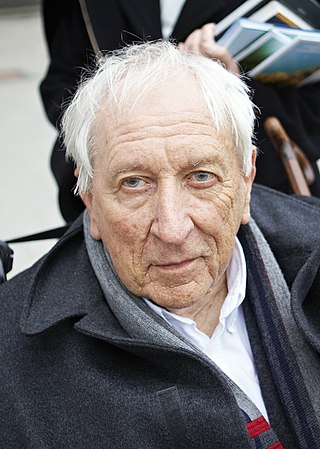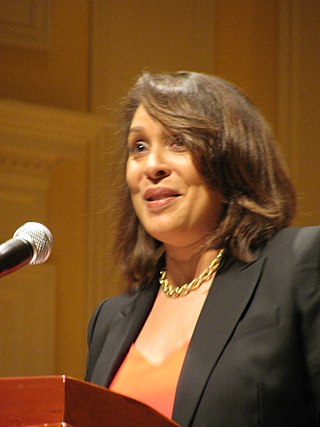Marilyn Hacker is an American poet, translator and critic. She is Professor of English emerita at the City College of New York.
Tess Gallagher is an American poet, essayist, and short story writer. Among her many honors were a fellowship from the Guggenheim Foundation, National Endowment for the Arts award, Maxine Cushing Gray Foundation Award.

Tomas Gösta Tranströmer was a Swedish poet, psychologist and translator. His poems captured the long Swedish winters, the rhythm of the seasons and the palpable, atmospheric beauty of nature. Tranströmer's work is also characterized by a sense of mystery and wonder underlying the routine of everyday life, a quality which often gives his poems a religious dimension. He has been described as a Christian poet.
Lynda Hull was an American poet. She had published two collections of poetry when she died in a car accident in 1994. A third, The Only World, was published posthumously by her husband, the poet David Wojahn, and was a finalist for the 1994 National Book Critics Circle Award. Collected Poems By Lynda Hull, was published in 2006.
Kate Braverman was an American novelist, short-story writer, and poet. Los Angeles was the focus for much of her writing.
Josip Novakovich is a Croatian Canadian writer.

Saadi Youssef was an Iraqi author, poet, journalist, publisher, and political activist. He published thirty volumes of poetry in addition to seven books of prose.

Anthony Dey Hoagland was an American poet. His poetry collection, What Narcissism Means to Me (2003), was a finalist for the National Book Critics Circle Award. His other honors included two grants from the National Endowment for the Arts, a 2000 Guggenheim Fellowship in Poetry, and a fellowship to the Provincetown Fine Arts Work Center. His poems and criticism have appeared in such publications as Poetry Magazine, Ploughshares, AGNI, Threepenny Review, The Gettysburg Review, Ninth Letter, Southern Indiana Review, American Poetry Review and Harvard Review.
Mary Szybist is an American poet. She won the National Book Award for Poetry for her collection Incarnadine.

Carl Phillips is an American writer and poet. He is a professor of English at Washington University in St. Louis. In 2023, he was awarded a Pulitzer Prize for Poetry for his Then the War: And Selected Poems, 2007-2020.

Martha Collins is a poet, translator, and editor. She has published eleven books of poetry, including Casualty Reports, Because What Else Could I Do, Night Unto Night, Admit One: An American Scrapbook, Day Unto Day, White Papers, and Blue Front, as well as two chapbooks and four books of co-translations from the Vietnamese. She has also co-edited, with Kevin Prufer and Martin Rock, a volume of poems by Catherine Breese Davis, accompanied by essays and an interview about the poet’s life and work.

Natasha Trethewey is an American poet who served as United States Poet Laureate from 2012 to 2014. She won the 2007 Pulitzer Prize in Poetry for her 2006 collection Native Guard, and is a former Poet Laureate of Mississippi.
Dobby Gibson is an American poet. His first book of poetry, Polar, won the 2004 Beatrice Hawley Award and was a finalist for the 2006 Minnesota Book Award. He is also author of Skirmish (2009) It Becomes You (2013), and Little Glass Plane (2019), all published by Graywolf Press.
Douglas A. Powell is an American poet.
James L. White was an American poet, editor and teacher.
Khaled Mattawa is a Libyan poet, and a renowned Arab-American writer, he is also a leading literary translator, focusing on translating Arabic poetry into English. He works as an Assistant professor of creative writing at the University of Michigan, Ann Arbor, Michigan, United States, where he currently lives and writes.
David Rivard is an American poet. He is the author of seven books including Wise Poison, winner the 1996 James Laughlin Award, and Standoff, winner the 2017 PEN New England Award in Poetry. He is also a Professor of English Creative Writing in the Masters of Fine Arts program at the University of New Hampshire.

Mary Jo Bang is an American poet.
Donna Stonecipher is an American poet.

Maria Saskia Hamilton was an American poet, editor, and professor and university administrator at Barnard College. She published five collections of poetry, the final of which, All Souls, was posthumously published in September 2023. Her academic focus was largely on the American poet Robert Lowell; she edited several collections of the writings and personal correspondence of Lowell, Elizabeth Hardwick, and Elizabeth Bishop. Additionally, she served as the director of literary programs at the Lannan Foundation, as the Vice Provost for Academic Programs and Curriculum at Barnard College, and as an editor at The Paris Review and Literary Imagination.










